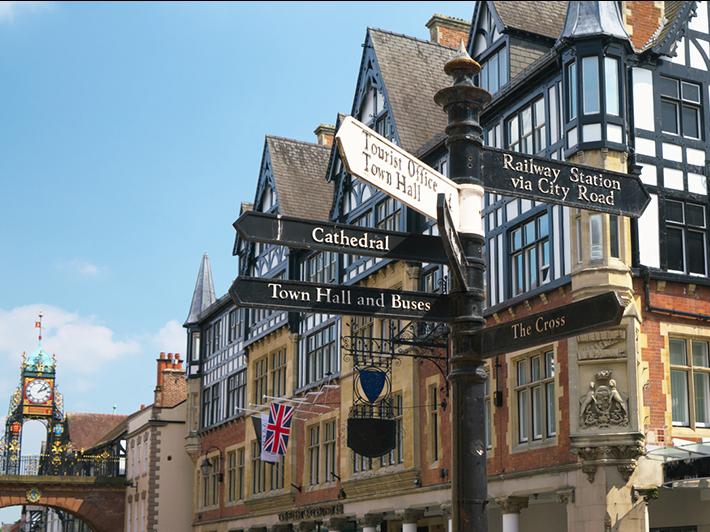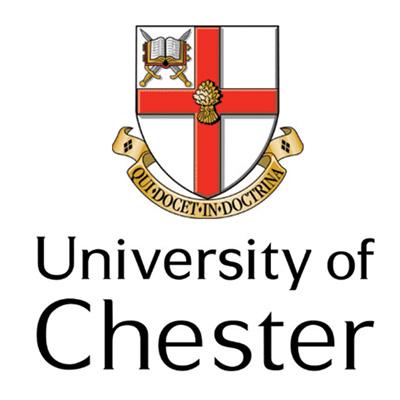
Lessons from first-time festival planners
You may also like
Popular resources
No university is an island. Within each institution’s local setting, civic institutions and communities are important stakeholders, and a part of the university’s identity. However, when times are tough across the sector nationally, how can we celebrate our local places and partners without compromising the student experience and outcomes?
We have found that festivals or large-scale events are an effective way to shine a light on the university, and its communities and partners. The Chester Festival of Ideas launched in 2024, with a four-day programme of about 90 free, inclusive and accessible public events at venues across the city, including the cathedral and Chester Town Hall. This year, with as much to offer again, event attendances grew steadily. The festival features everything from the chance to hear well-known broadcasters to talks about the university’s research, opportunities to get creative at art workshops and guided walks.
- Spotlight guide: advice from academics and institutions shortlisted in the THE Awards 2025
- Industry engagement matters for doctoral candidates, too
- Creative ways to boost student learning through community-based projects
In developing this large-scale event from scratch, we learned a lot, and quickly, about how to create a shared sense of purpose and how best to manage internal and external stakeholders. Here are our key takeaways:
Define and refine the purpose of your festival
Be clear on why you are organising this event. We wanted the festival to bring together civic partners, to celebrate our city, and to provide engagement opportunities for our staff and students to support delivery of our institutional Citizen Student Strategy.
Depending on your institution and your role within it, the answer may be:
- to enhance your university’s reputation locally
- to create opportunities for students and early career researchers to engage the public in their research
- to enhance the university’s research culture
- to amplify and celebrate the research and knowledge exchange activities of staff and students
- to build external networks and partnerships with local stakeholders.
Knowing what you want out of your event or festival is a first step, although it can bring to the fore different attitudes and priorities about your institution’s engagement priorities. Unpicking those is valuable – but can be tricky. For example, you may find that individual academic teams have a different vision from your senior leadership team about what your event or festival should look and feel like, or who it should be for. It is important to refer to your institution’s strategic commitments: who do you need to engage with to achieve these, and what outcomes do you need? These discussions will develop a shared sense of purpose, which is incredibly empowering.
Connect with external partners
Once you have identified your shared purpose and the type of event you’d like to host, pulling together friendly stakeholders – internal and external – is the next step to explore your idea.
We held a sandpit event to draw on colleagues’ networks and pull in local stakeholders with an interest or role in the city, selling them our vision and then leading group work to give them the opportunity to feed in ideas.
Part of getting external stakeholders on board is to think about what they may want out of your event; people won’t want to miss out on a positive opportunity. For example, many of our stakeholders welcomed the chance to widen their reach by leading events as part of our festival. Their ideas gave us a core cohort of events to start building around.
Who do you need to get on board?
Making a link with institutional priorities can be very persuasive in securing support from senior leadership, For us, that came in the form of our pro vice-chancellor for research and innovation. The connection also ensured that our research and knowledge exchange goals shaped the festival.
Energy begets energy. The enthusiasm of our festival director attracted interest from colleagues across the institution, who then brought with them their own contacts and, importantly, events expertise.
Once you have a group of interested supporters, keep them informed and bring them along with you. This doesn’t have to be burdensome; short update emails every couple of weeks can be enough to keep momentum going. Our stakeholders include internal colleagues with marketing expertise, external charities who have helped us make our festival more inclusive, and representatives from our local authority, who have connected us with key individuals.
Keep a beginners’ mindset
Don’t expect perfection with your first event and be prepared to learn a lot as you go (unless you’re an event manager by trade). Ask colleagues and stakeholders for advice and keep a log of lessons learned. It will probably be quite long! We learned from our stakeholders – a number of whom hold marketing and events roles across our city – how best to strategise our marketing and communications and who we needed to contact at venues.
Make sure you can point to success
After the event has been packed away, you will need to be able to answer the question: “Was it a success?” Think about how you will capture evidence well before your event.
It will come back to your original intentions (the “why” of your planning sessions). We wanted the event to build networks and contacts, extend research impact and enhance the university’s reputation. So, we asked:
- event leaders (both internal and external) what outcomes the festival had for them, that is, if their involvement had extended their networks or given them new ideas about how to share their work with the public
- attendees if they had attended our events before, if they learned anything and if they’d attend another event based on their experience.
With thousands of event attendances and considerable feedback since the first festival, we are building a rich dataset to help us understand our engagement and impact, and further enhance the festival in future.
Individuals and institutions will face barriers when initiating a public event or festival, but with a focused approach, it is possible to deliver something inspiring and engaging that will enhance institutional reputation and deliver essential priorities. Universities have broad networks, great facilities for hosting events, and a wealth of engaging thought leaders. You’ve got everything you need to deliver an amazing event.
Katherine Wilson, Sarah Cameron, Jane Pearson and Hannah Perkins are all members of the Festival of Ideas team at the University of Chester.
The Chester Festival of Ideas was shortlisted in the Knowledge Exchange/Transfer Initiative of the Year category in the THE Awards 2025. A full list of all finalists can be found here.
If you would like advice and insight from academics and university staff delivered direct to your inbox each week, sign up for the Campus newsletter.




